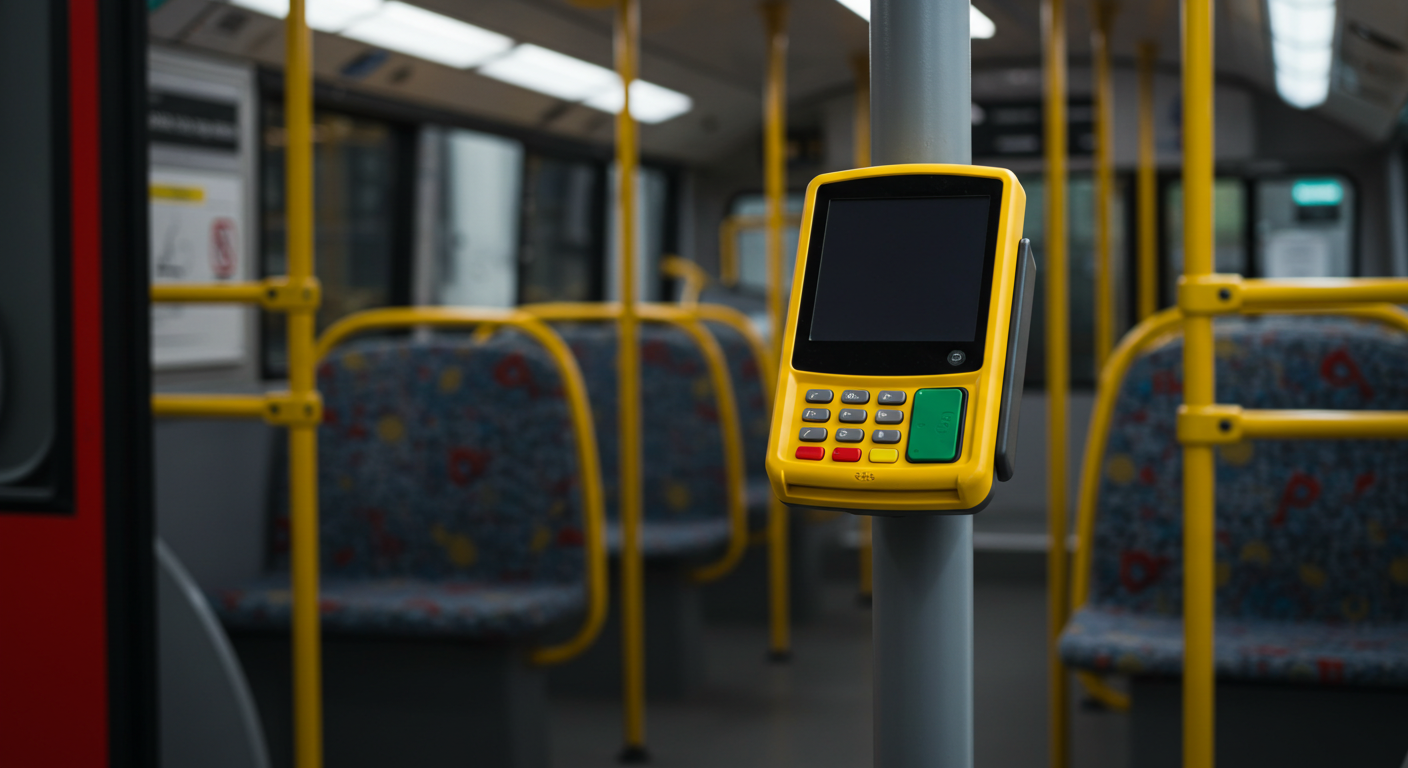Caught Using Someone Else’s Bus Pass: The Legal Risks and What You Should Do

Caught Using Someone Else’s Bus Pass: The Legal Risks and What You Should Do
Many people mistakenly believe that using someone else’s bus pass is a harmless shortcut to save a little money on travel. However, under UK law, this is a form of fare evasion and can result in serious legal and financial consequences. Transport authorities are cracking down on bus pass misuse more than ever in 2025, with inspectors trained to identify fraud and sophisticated technology in place to catch offenders.
If you’ve been stopped by a revenue protection officer or received a letter accusing you of using another person’s bus pass, it’s vital to understand your rights, the enforcement process, and how to respond appropriately. As an expert in fare evasion law, I’ve worked with countless individuals in this situation and can confirm that acting quickly and correctly makes a significant difference to the outcome of your case.
Why Is Using Someone Else’s Bus Pass a Criminal Offence?

A bus pass, such as the English National Concessionary Travel Scheme (ENCTS) pass or Freedom Pass, is issued to an individual for their personal use. It cannot legally be shared, lent, or borrowed, even between family members. This is because these schemes are designed to assist specific groups, such as pensioners, disabled individuals, or students, and transport operators rely on the integrity of the system to remain financially viable.
Misusing a bus pass can include travelling on a discounted or free ticket using another person’s pass, showing someone else’s pass to a revenue inspector, or allowing someone else to borrow your pass. While it may seem like a minor breach of the rules, it is treated as a deliberate attempt to avoid paying the correct fare and, in some cases, as fraud under the Fraud Act 2006.
Transport authorities see this behaviour as undermining public trust and causing substantial revenue losses, which is why they pursue these cases rigorously.
What Happens If You’re Caught Using Another Person’s Bus Pass?
If you are caught using someone else’s bus pass, the situation can escalate quickly depending on the circumstances and the discretion of the revenue protection officer.
Issuance of a Penalty Fare
In some cases, you may be issued an on the spot penalty fare. As of March 2025, penalty fares for bus travel have increased to £120, though this can be reduced to £60 if paid within 21 days. While this may seem like the end of the matter, repeated offences or failure to pay could lead to further action.
Confiscation of the Bus Pass
The bus pass you were using is likely to be confiscated immediately. The person to whom the pass was issued may also face consequences, such as being permanently barred from holding a concessionary pass in the future.
Fare Evasion Investigation
If the revenue protection officer suspects that the misuse was intentional and not a genuine mistake, they may take your personal details and refer the matter for investigation. You may then receive a formal fare evasion warning letter from the transport authority or bus operator, asking you to provide a written explanation within a specified time frame, often 14 days.
Prosecution for Fare Evasion or Fraud
In serious cases, especially where there is evidence of deliberate dishonesty, the operator may decide to prosecute you. Charges can be brought under:
-
Section 5(3)(a) of the Regulation of Railways Act 1889 (failure to produce a valid ticket with intent to avoid payment)
-
The Fraud Act 2006, if there was clear evidence of deception for financial gain
If found guilty in court, you could face:
-
A fine of up to £1,000
-
Repayment of unpaid fares and administrative costs
-
A criminal record, which could affect your employment prospects, visa applications, and even professional licences
Bus Pass Misuse Enforcement Trends in 2025

The approach to fare evasion enforcement has tightened significantly in recent years. Transport for London (TfL) and regional transport authorities are investing heavily in smarter enforcement technologies and staff training to detect misuse.
-
In 2024 alone, over 52,300 penalty fares were issued across England for bus and rail fare evasion
-
Nearly 11,400 prosecutions were brought against individuals for the misuse of concessionary travel passes such as Freedom Passes and ENCTS passes
-
Fare evasion is estimated to cost local authorities and transport operators more than £180 million annually in lost revenue
The crackdown means even first-time offenders are being investigated thoroughly, and excuses such as “I didn’t realise I couldn’t use my partner’s bus pass” are unlikely to result in leniency.
What Should You Do If You Receive a Fare Evasion Letter?
If you’ve received a letter accusing you of fare evasion or misuse of a bus pass, it’s critical that you do not ignore it. Failure to respond within the deadline will almost certainly result in the matter being referred to court.
-
Seek Specialist Legal Advice Immediately
An experienced solicitor who deals with fare evasion cases can assess your situation and help you prepare a strong written response. In many cases, they can negotiate an out-of-court settlement, especially if it was your first offence or there were mitigating circumstances. -
Respond Promptly and Honestly
Most letters allow only 14 days to provide your explanation. Delaying or submitting an incomplete response can work against you. -
Gather Evidence
If the misuse was accidental or you believe you were wrongly accused, gather any documents that support your case, such as proof of purchase for your own valid ticket or correspondence showing confusion over eligibility.
Can You Avoid a Criminal Record for Bus Pass Misuse?

In many cases, it is possible to resolve the matter without prosecution, especially if:
-
It was a first offence
-
You can demonstrate it was an honest mistake
-
You agree to pay the outstanding fare and an administrative fee
However, transport operators are under increasing pressure to prosecute repeat offenders or those they believe acted dishonestly, which is why legal representation is highly recommended.
Frequently Asked Questions
1. Can I lend my Freedom Pass to my spouse or child?
No. Bus passes are issued strictly for the use of the person named on them. Lending your pass breaches its terms and may result in confiscation and permanent disqualification.
2. Will I get a criminal record if caught using someone else’s bus pass?
If the transport operator decides to prosecute and you are convicted, then yes, you will receive a criminal record under the Fraud Act or Railways Act.
3. Can I appeal a penalty fare?
You can appeal, but appeals are rarely successful unless you can provide strong evidence that the penalty was issued in error.
Caught Using Someone Else’s Bus Pass? Get Expert Legal Help
Being caught using another person’s bus pass can have life-changing consequences. The risk of heavy fines, court prosecution, and a criminal record is not worth the small amount saved on fares.
If you have been stopped or have received a fare evasion warning letter, speak to Makwana Solicitors immediately. Early legal intervention often makes the difference between resolving the matter quietly and facing prosecution.
Notice: Informational Content Disclaimer
The content provided on this website, including articles, blog posts, and other informational materials, is intended for general informational purposes only. It is not intended as, and should not be considered, legal advice.
Visitors to this website should be aware that the information presented here is not a substitute for seeking legal advice from a qualified solicitor or legal professional. Each individual's legal situation is unique, and the information provided may not be applicable to specific circumstances.
If you require legal advice or have specific legal questions, we encourage you to contact us directly. Our experienced team of solicitors is here to assist you with your legal needs and provide tailored advice to address your concerns.
Please be advised that any communication through this website, including the use of contact forms or email, does not create a solicitor-client relationship. Confidential or time-sensitive information should not be sent through this website. To establish a solicitor-client relationship and discuss your legal matters in detail, please contact us for a consultation.
We strive to provide accurate and up-to-date information, but we make no representations or warranties regarding the accuracy, completeness, or suitability of the information contained on this website. We shall not be liable for any reliance placed on the information provided herein.
Thank you for visiting our website. We look forward to the opportunity to assist you with your legal needs.




